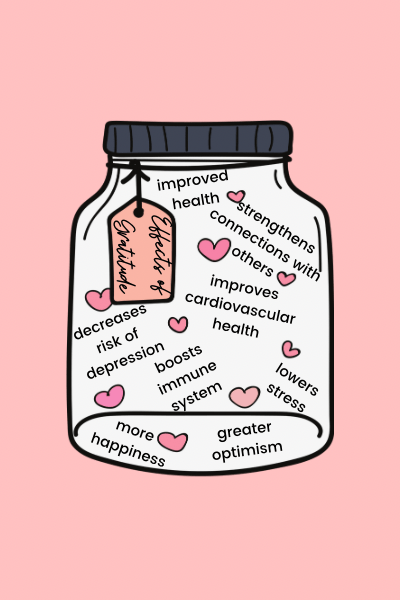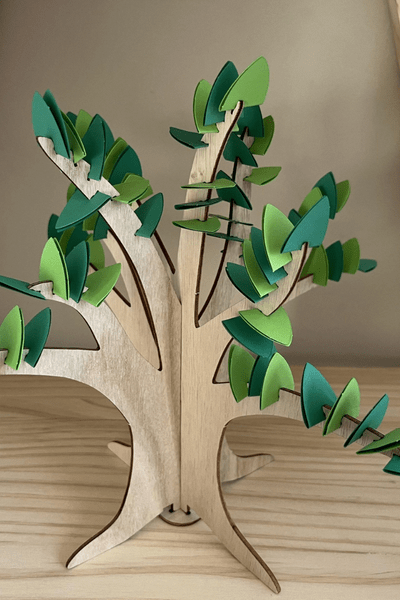Gratitude is attitude.
You’ve probably heard this expression before. I had, too, but I didn’t quite understand the meaning until I began to cultivate a gratitude practice of my own.
When I first moved to Charleston from New York City over six years ago, one thing that kept me grounded as I acclimated to a new city and a slower pace of life was having a consistent gratitude practice. I took baby steps, first by appreciating and being thankful for the beauty of my surrounding environment. Then, I began reflecting on the things that were sources of joy in my daily life. I noticed that the more grateful I was for the positive in my life, the more the stressors started to drift away. It was so refreshing to remind myself of little blessings in my life that the practice kind of stuck!
Fast forward years later when I found myself again going through a major life change, I returned to this meditative practice of giving thanks — which has helped me see the silver linings in everything.
New to the practice but want to get started? Let’s explore the awesome power of gratitude.
So, What Exactly Is Gratitude?
We all know that the need to be happy is one of the most essential needs for human beings. As we navigate the human experience, however, it can be challenging to remain happy, especially in times of stress or crisis. Having a powerful gratitude practice can help anyone overcome life’s hurdles, and can even improve overall mental health and well-being. It can also reduce levels of stress and anxiety. This certainly rang true in my life. Time and time again, I’ve returned to this centering practice.
In simplest terms, gratitude is being appreciative for what one has and for what is, according to Psychology Today. Gratitude is an emotion that shifts us from negative thinking into a more positive frame of mind. The concept of practicing gratitude for greater mental health and well-being stems from the teachings of “Positive Psychology,” a domain of modern psychology first coined by Martin Seligman in 1998 (while president of the American Psychological Association). This field focuses on positive life experiences, like contentment, joy, and well-being, versus reacting to the negative.
Robert Emmons, a psychologist and professor at the University of California, Davis, and editor-in-chief of The Journal of Positive Psychology, found that being grateful has positive effects on mental and physical well-being, as well as with relationships.
How Gratitude Impacts Well-Being
Evidence-based research indicates that practicing gratitude is beneficial to one’s overall physical wellness and mental well-being. A frequently quoted 2004 peer-reviewed study concluded that a higher state of mental health wards off illness that can be caused by stress. Through practices such as gratitude, we are able to rewire our brains to approach life from a more positive standpoint as opposed to constantly being on guard. From reducing feelings of stress and anxiety, to decreasing states of depression, to improving circulation and immunity, having a gratitude practice goes a long way.
Here is a short list of the many positive effects of gratitude:
- Improved overall health and well-being
- Strengthened connections with other people
- Decreased risk of depression
- Improved cardiovascular health
- Boosted immune system
- Lower stress levels
- Greater optimism
- More happiness

Ways to Cultivate Gratitude
This all makes sense in theory, but it may be harder to cultivate gratitude in practice, especially if you’re new to the concept or if you struggle with identifying feelings.
Like a muscle, cultivating gratitude can be learned — but it takes time, commitment, and a lot of patience. Practicing regularly until it becomes routine will help instill this emotion into your daily life. Keeping a gratitude journal and recording what you are grateful for, big or small, on a daily basis is a great way to start.
Once you’ve mastered your gratitude journal and have made it a daily habit, other ways to practice gratitude will flow easily as you become more versed in expressing this emotion. I’ve added a gratitude tree to my rotation, in addition to my daily gratitude journal. Another variation is a gratitude jar where you write one thing you’re grateful for a day and pop it in the jar.
 Yet another example of expressing gratitude is through writing letters of appreciation. These can take many forms, like sending a birthday card in advance of someone’s special day or simply sending a “thinking of you” card. Little notes of appreciation can make all the difference in the world to lift spirits and set a positive tone.
Yet another example of expressing gratitude is through writing letters of appreciation. These can take many forms, like sending a birthday card in advance of someone’s special day or simply sending a “thinking of you” card. Little notes of appreciation can make all the difference in the world to lift spirits and set a positive tone.
Need more inspiration? Check out this article on 101 things that Charleston Moms are grateful for.
Having a daily gratitude practice is not only beneficial to your health, but it is also beneficial to relationships with others as well. By cultivating gratitude, we are able to train our brains to think more positively and to see life with a new lens of appreciation. We begin to take life’s hiccups in stride, realizing that there are lessons to be learned despite our current circumstances and that there are still many sources of joy in our lives, no matter how big or small.
This awesome power of gratitude is truly transformational. When practiced daily, we have the ability to transform not only ourselves but our environments as well with this positive way of thinking.












